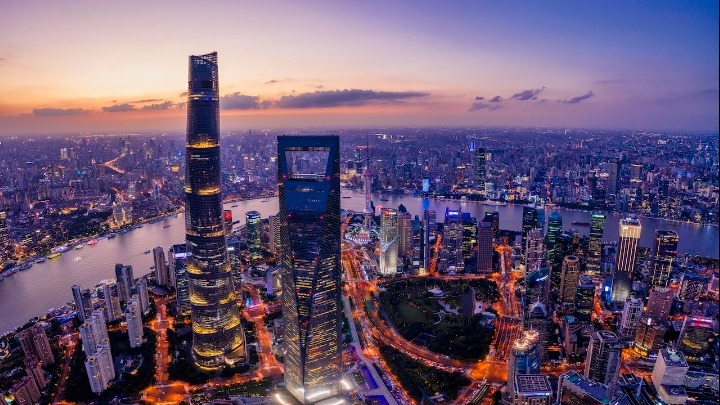As part of its strategic vision, Zhangjiang is set to establish a global-scale Interactive Center for Artificial Intelligence Innovation, further positioning itself as a leading hub in cutting-edge technologies.
Zhangjiang has evolved into a testbed for smart city applications, aiming to enhance residents' quality of life, improve the efficiency of public services, and promote sustainable urban development. The city integrates advanced technologies and artificial intelligence (AI) to restructure and manage its administrative and urban infrastructure.
Smart Infrastructure Management
Zhangjiang has heavily invested in smart infrastructure, incorporating sensors and Internet of Things (IoT) technologies to monitor and manage key public services such as energy, water, wastewater, and waste management.
Energy Systems: Smart meters and energy management platforms track consumption and reduce waste, while also encouraging the use of renewable energy sources like solar and wind.
Waste & Recycling: AI is employed to optimize waste collection through predictive data analysis, determining the timing and location of pickups to reduce congestion and enhance operational efficiency.
Transport and Traffic Management
The city has revolutionized traffic control using AI and predictive algorithms. Real-time data from sensors and cameras are leveraged to monitor and address congestion.
Autonomous Vehicles: Zhangjiang serves as a pilot zone for self-driving cars, with dedicated lanes and supporting infrastructure for autonomous transport systems.
Smart Traffic Lights: Adaptive traffic signals respond to real-time traffic conditions, improving flow and reducing delays.
AI-Based Traffic Optimization: Algorithms analyze mobile, GPS, and video data to forecast traffic patterns and optimize routes and signal timings, significantly reducing congestion and travel time.
Urban Planning and Sustainable Development
AI and Big Data play a central role in urban planning and infrastructure management, enabling more efficient and sustainable development.
Data-Driven Urban Planning: Through geospatial technologies (GIS) and mobility data, Zhangjiang analyzes residents’ needs to design neighborhoods aligned with market trends and demographic preferences.
Green Urban Design: The city emphasizes the creation of green buildings and sustainable zones by measuring energy efficiency, minimizing CO₂ emissions, and promoting recycling.
Smart Governance and Transparency
Zhangjiang utilizes AI and digital tools to enhance the transparency, responsiveness, and efficiency of public services.
Digital Governance: Citizens interact with government services via online platforms. AI technologies categorize requests and streamline case management, expediting administrative processes.
Behavioral Analytics: AI analyzes citizen behavior data to forecast future needs and improve services—such as anticipating public transport demand or planning for educational infrastructure based on demographic trends.
AI-Enhanced Healthcare and Education
The city is also advancing smart public services in healthcare and education through AI-driven innovations.
Health Monitoring: Wearable devices and sensor technologies enable real-time health monitoring and timely interventions based on residents' health data.
AI in Education: Personalized learning environments are powered by AI, allowing students to follow customized educational paths based on individual capabilities and needs.
Integrated Smart City Ecosystem
Zhangjiang's digital infrastructure includes:
- 700,000 m² of industrial zones
- 1,000,000 m² of supporting facilities
- Conference centers and residential districts
All components are designed to foster a highly integrated AI ecosystem, where urban living, innovation, and sustainability converge seamlessly.















